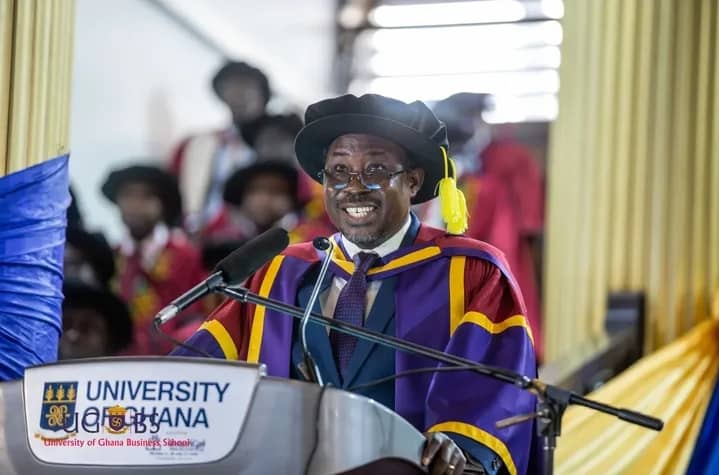The Dean of the University of Ghana Business School, Professor Justice Nyigmah Bawole, has attributed Ghana’s developmental stagnation to widespread corruption and unethical behavior among its citizens.
Speaking at his inaugural lecture on July 10 under the theme “Our Corruption, Our Ethics, Our Public Administration: Wicked Citizens, Wicked Problems, and Stagnating Development,” Prof. Bawole challenged the widely held belief that only political elites are responsible for corruption in Ghana.
“We face what scholars call wicked problems, and these are exacerbated by the wickedness of our collective behavior. The claim that we are innocent victims of corrupt elites is no longer tenable. In fact, the everyday practices of citizens perpetuate a cycle of normalized corruption. Until we recognize our shared complicity, Madam Chair, there can be no meaningful progress.”
Prof. Bawole lamented Ghana’s inability to progress at the same pace as its peers following independence in the 1960s.
“Countries that were similar to Ghana at independence; South Korea, Singapore, Malaysia have surpassed us on nearly every development indicator. The data shows that Ghana has remained stagnant, ranking 120th out of 167 countries in achieving the Sustainable Development Goals, with a score of 63.13.”
He further criticized institutions tasked with fighting corruption, stating that despite decades of reforms and investments, these bodies remain largely ineffective.
“Over the past three decades, several institutional reforms have been made, capacity building has received increased attention, and there’s been significant investment in accountability architecture. However, these institutions often face resource constraints, political interference, and limited enforcement capacity. Their performance highlights the limits of technocratic fixes in the absence of political commitment and ethical leadership.”
He also called for continued public criticism of corrupt officials and stressed the need to reintroduce moral and ethical training in schools.
“Our public life today often reflects a departure from foundational moral principles. Reviving these values is not just an academic exercise. It is essential to restoring trust, accountability, and ethical leadership in Ghana’s public life.”
He concluded by urging professionals in the corporate sector to be wary of accepting gifts, as such practices can perpetuate corrupt tendencies.
–
Story by Lawrence Nii Aryee Tetteh|univers.ug edu.gh
Edited by Michelle Lartey
–





